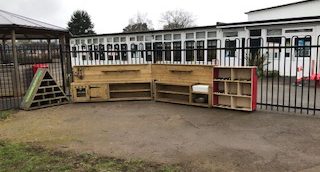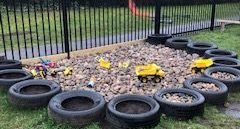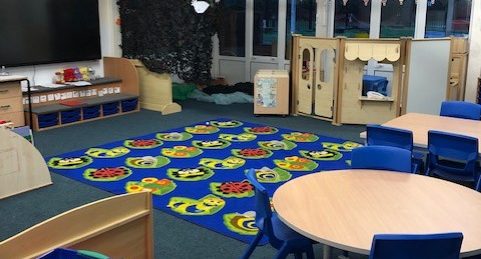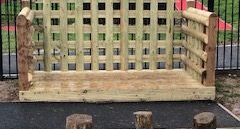Intent
Learning at Broom Barns starts from the day your child is offered a place in our Nursery. Through written information, stay and play sessions and parent information sessions, we will support you and your child to develop the skills that they will need to make an effective transition to school. Our youngest pupils develop a love of learning through inspiring topics and engaging daily experiences. Our teaching and learning is organised to make a developmental difference to each child and ensure that they know more and remember more. The focus is on core skills: personal, social and emotional development; communication and language; creativity; early literacy; maths and problem solving; physical development and self-care. Our ‘Curricular Goals’ form the basis of our broad and balanced curriculum, widen children’s skills and knowledge and ensure all children are in a strong position prior to embarking on the National Curriculum in Year One. The Goals help children know what they are good at and allow them to feel confident about themselves.
Implementation
Our Curricular Goals are designed with the particular strengths and needs of our community in mind – they are meaningful to children and their families. Developing communication and language and a love of reading are key to our Goals. The Goals fully incorporate the Educational Programmes and Guiding Principles of the EYFS and provide an overview of many of the different things we would like children to experience, learn and be able to do.
Each curriculum area considers skills progression – end of year expectations for each phase of the EYFS – the coming-together of skills needed to achieve these milestones. This maps out a clear and sequential learning journey that is easily understood by children, parents and staff. They are ambitious and we offer scaffolding and extra support to help every child access the curriculum and to ensure they make progress through it.
There is a balance between adult-initiated experiences and child-initiated experiences and this is reflected in the organisation of the day: there are periods of sustained uninterrupted play to encourage in-depth exploration as well as structured sessions where children come together to be guided by an adult. Priority is given to setting aside the necessary time for children and adults to be together and become fully engaged in cooperative learning.
Each half term of learning is split into two areas of focus: an “I wonder question” and “Let’s Explore” topics based around a core story or tale. Key knowledge and skills are identified as part of each topic and children’s needs and interests are expertly woven through all learning. This is supported with a well structured learning environment which reflects the needs of the cohort. Learning takes place both inside and out. Every learning space has a purpose and it is clear why each space is arranged as it is. The learning is supported by systematic programs for the teaching of phonics and maths: Essential Letters and Sounds and White Rose Maths.
Impact
All children make strong progress from their starting points and they are well prepared for their next stage in their learning. They feel safe and secure and are motivated to learn, as demonstrated by consistently high levels of well-being and involvement. Learning – whether as part of our topics or initiated by children’s own interests – allows children to make rapid progress and most achieve the early learning goals. Children start Year 1 with ease – resilient, able and settled for a more formal classroom context. Children’s communication and language and reading skills are significantly improved. They develop their vocabulary and understanding of language, and can express themselves and their thoughts in more fluent and cohesive sentences. Children enter Year 1 having grasped early reading skills and use their knowledge of phonics to read accurately and with increasing speed and fluency. For those children not working at expected levels, precise assessment provides a clear picture of children’s strengths and difficulties; barriers to learning; and the support that is needed to help them progress through the curriculum. Our relationships with parents and carers is very effective with many commenting positively about their child’s progress and the support they receive from us.






